
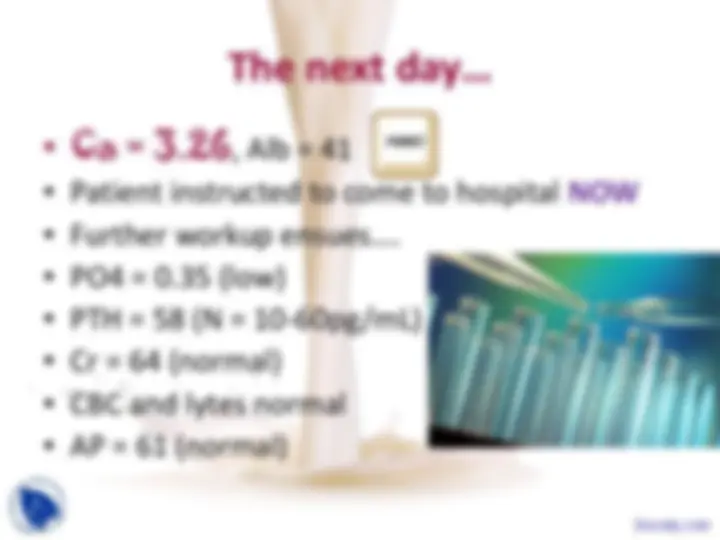
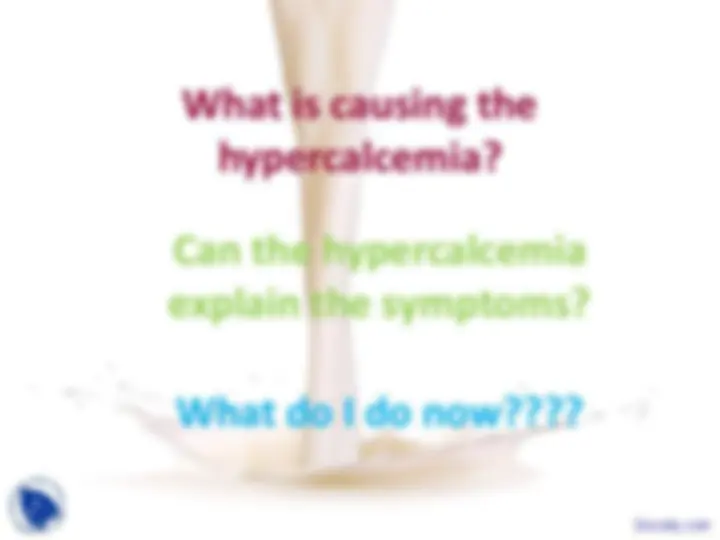
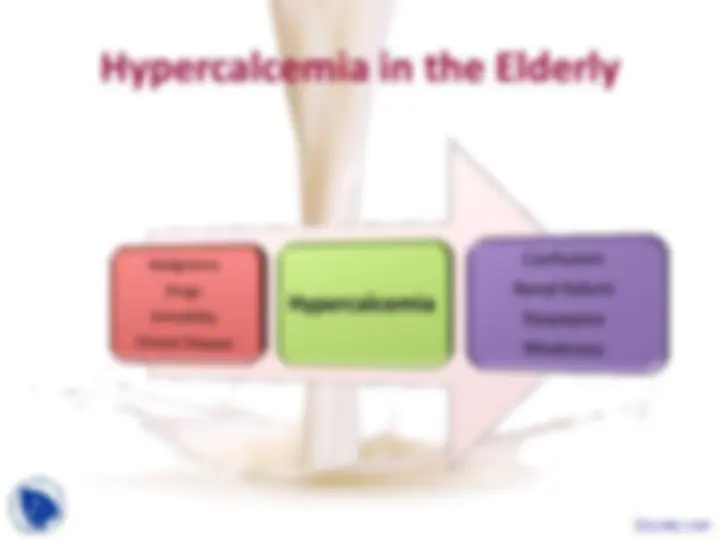
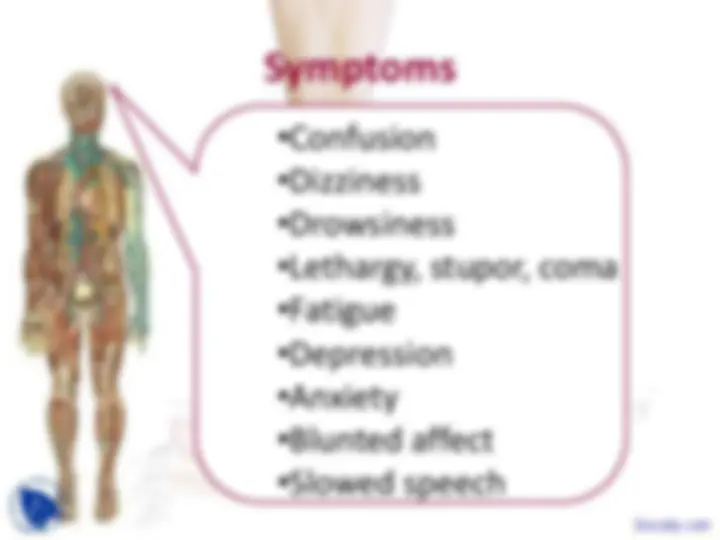
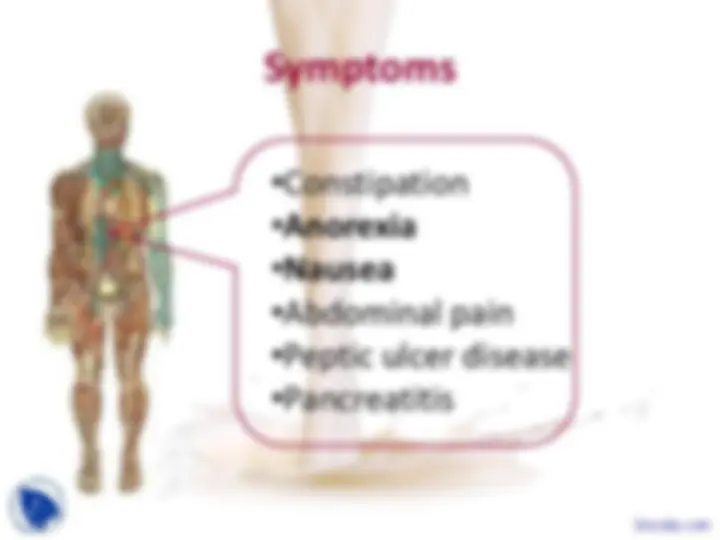
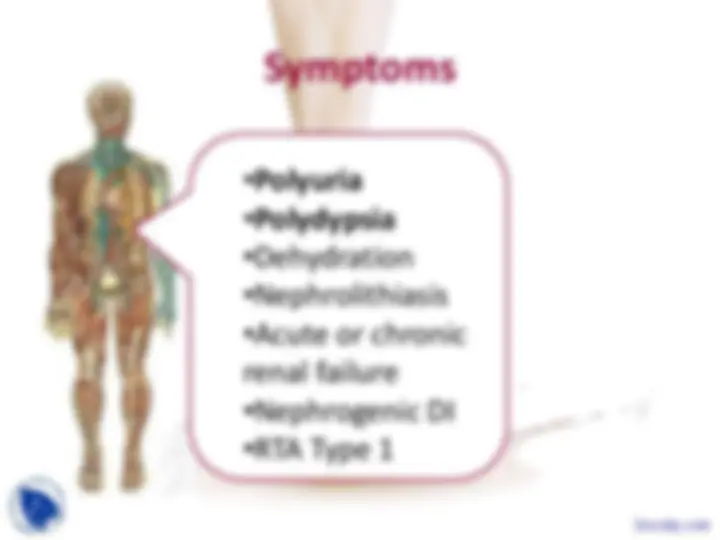
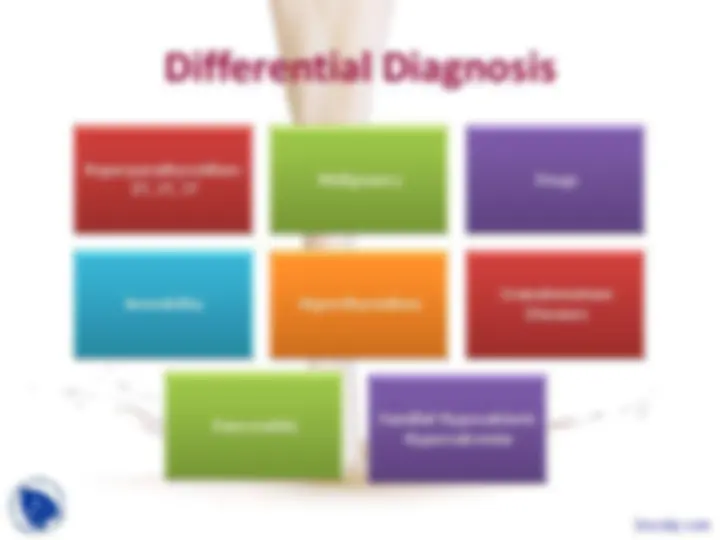
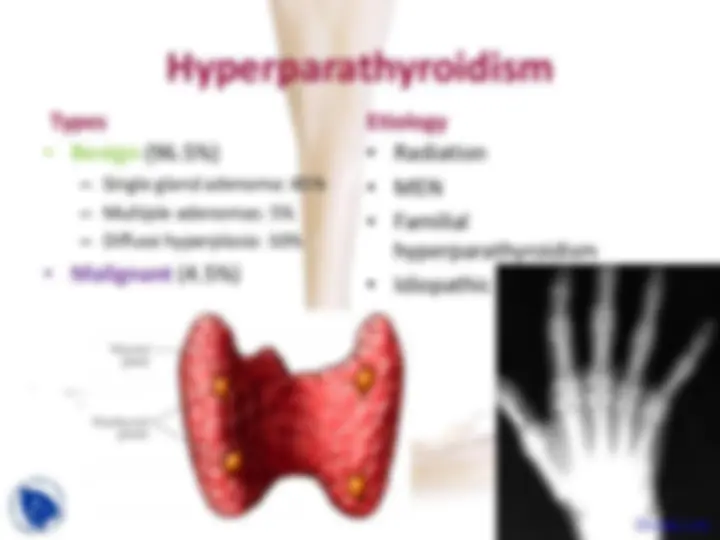
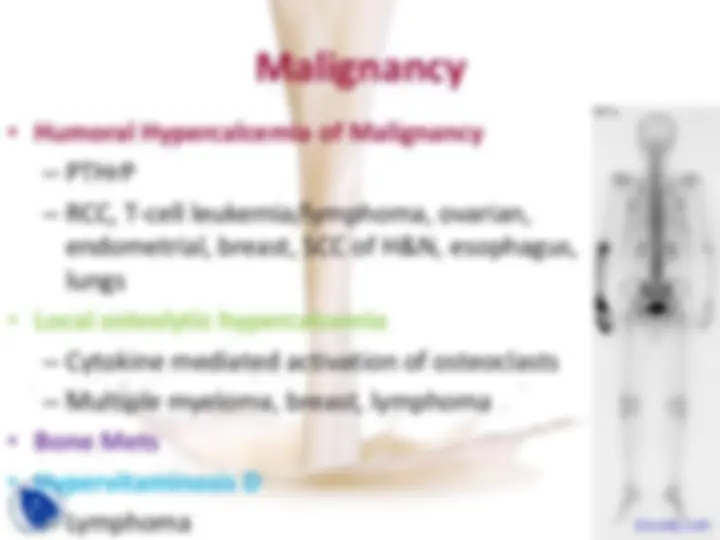
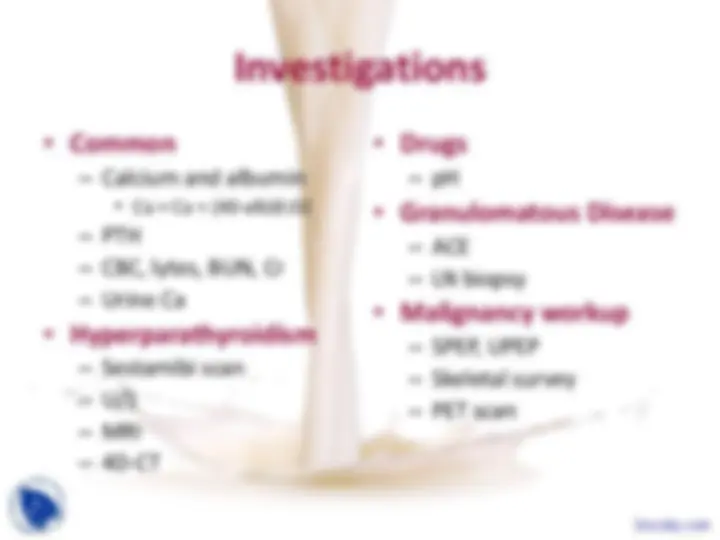
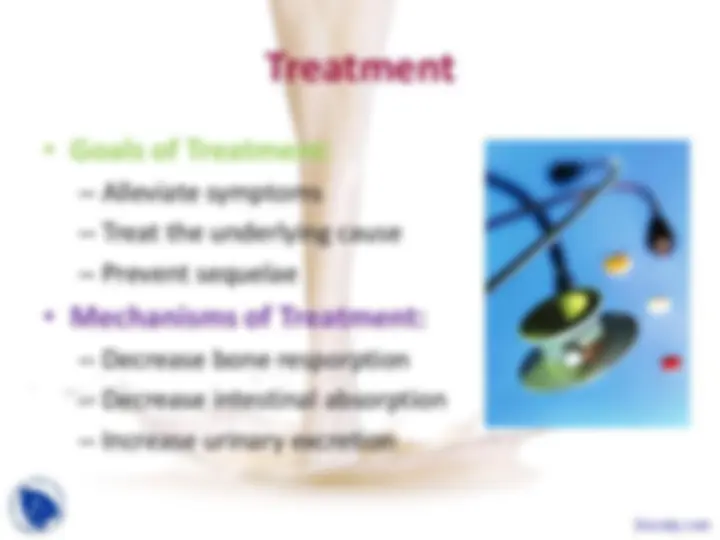
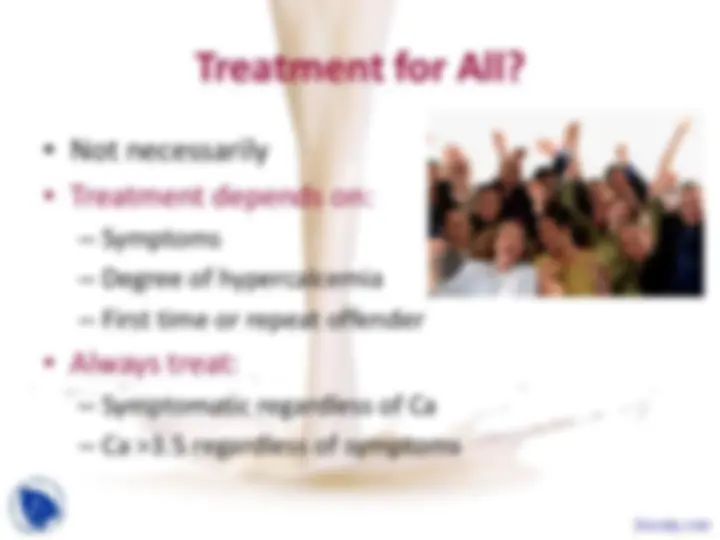
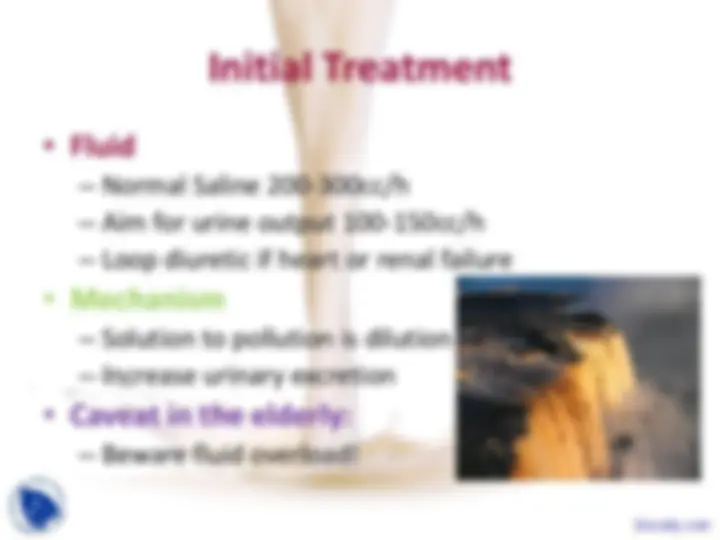
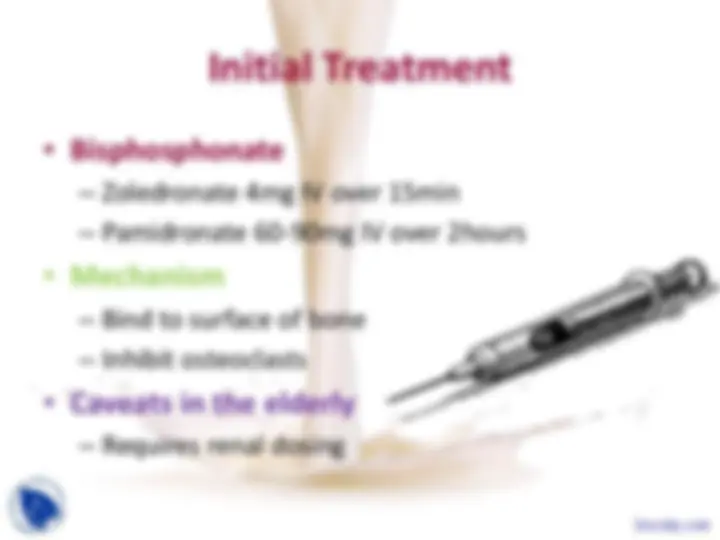
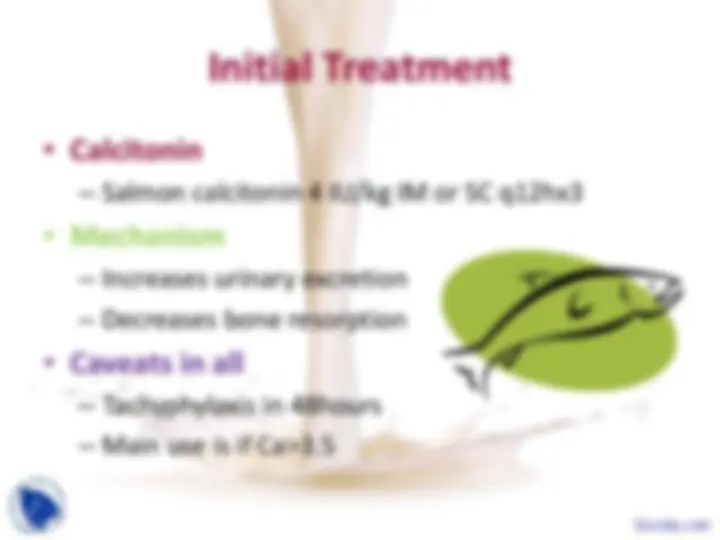
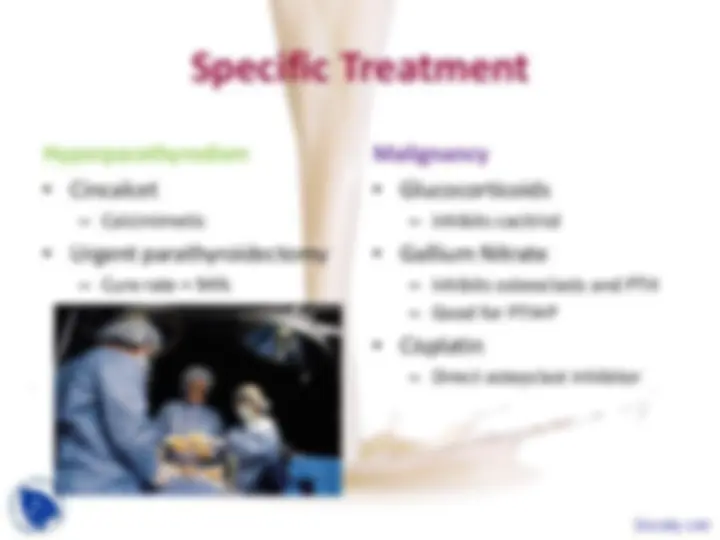
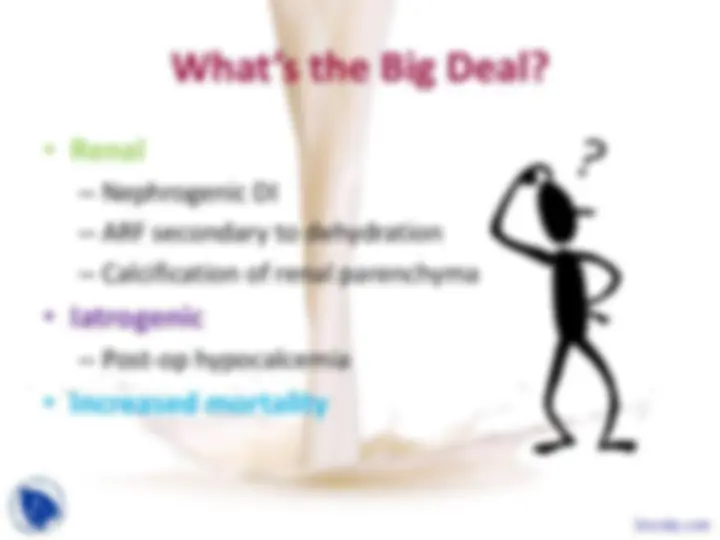
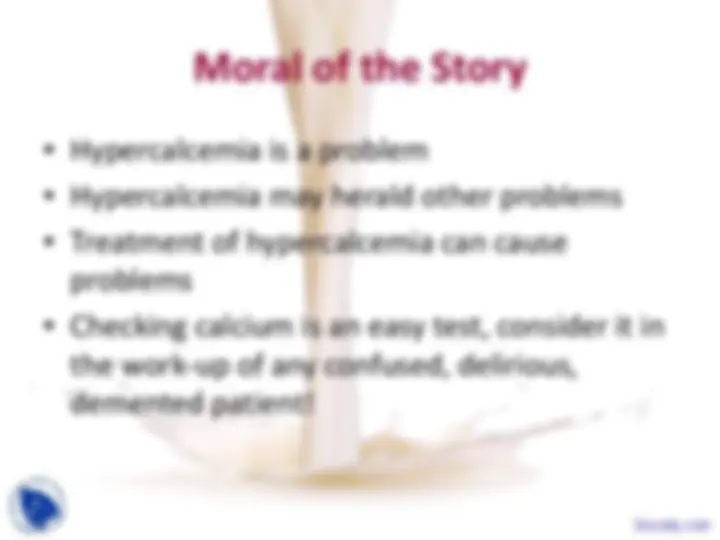



Study with the several resources on Docsity

Earn points by helping other students or get them with a premium plan


Prepare for your exams
Study with the several resources on Docsity

Earn points to download
Earn points by helping other students or get them with a premium plan
Community
Ask the community for help and clear up your study doubts
Discover the best universities in your country according to Docsity users
Free resources
Download our free guides on studying techniques, anxiety management strategies, and thesis advice from Docsity tutors
Hypercalcemia in Elderly, History of Breast Cancer, Hyperparathyroidism, Malignancy, Granulomatous Diseases, Pancreatitis, Differential Diagnosis, Specific Treatment are some points from Introduction to Geriatrics lecture.
Typology: Slides
1 / 27

This page cannot be seen from the preview
Don't miss anything!




















Hyperparathyroidism: 1º, 2º, 3º Malignancy^ Drugs
Immobility Hyperthyroidism GranulomatousDiseases
Pancreatitis Familial HypocalciuricHypercalcemia
Types
Etiology
Acute renal failure
Metabolic Alkalosis
Hypercalcemia